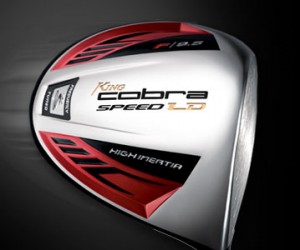Hmmm… In the old days, the only risk to one’s hearing from playing golf came from listening to 19th Hole bores. But things have moved on, as I discover from this interesting column by a prof at my old university.
The coefficient of restitution (Cor) of a golf club is a measure of the efficiency of energy transfer between the golf club head and the golf ball. The upper Cor limit for a golf club in competition is 0.83, which means that a golf club head striking a golf ball at 100km per hour will cause the ball to travel at 83km/h. The thinner faced titanium clubs, such as the King Cobra LD, have a greater Cor and deform more easily on impact – the “trampoline effect” – not only driving the golf ball further, but producing a louder noise than the stainless steel golf drivers. The King Cobra LD had a Cor greater than 0.83, but I understand that the current King Cobra drivers are allowable in competition and have been tuned to reduce noise.
The BMJ paper describes a man aged 55 who presented to an eye, ear, nose and throat clinic with tinnitus and reduced hearing in his right ear. He had been playing golf three times a week for 18 months using a King Cobra LD titanium club and he described the noise of the club hitting the ball as “like a gun going off”. He found the noise so unpleasant he was forced to discard the club. After detailed examination it was concluded that his hearing impairment was due to the noise of the golf club hitting the golf ball.
The researchers did an internet search of reviews of the King Cobra LD club. Typical comments were: “It can be heard all over the course, it is mad!” and “This is not so much a ting as a sonic boom which resonates across the course.”
Buchanan and colleagues measured the sound levels produced by six different titanium golf drivers and six standard thicker- faced stainless steel drivers, at a distance of 1.7m from the point of golf club impact with the ball, the average distance between the golfer’s right ear and the point of impact. The thin-faced titanium clubs were all louder than the stainless steel clubs. The King Cobra LD was not the loudest – that distinction went to the Ping G10.
The BMJ paper concludes: “Our results show that thin-faced titanium drivers may produce sufficient sound to induce temporary, or even permanent, cochlear damage in susceptible individuals. The study presents anecdotal evidence that caution should be exercised by golfers who play regularly with thin-faced titanium drivers to avoid damage to their hearing.”

